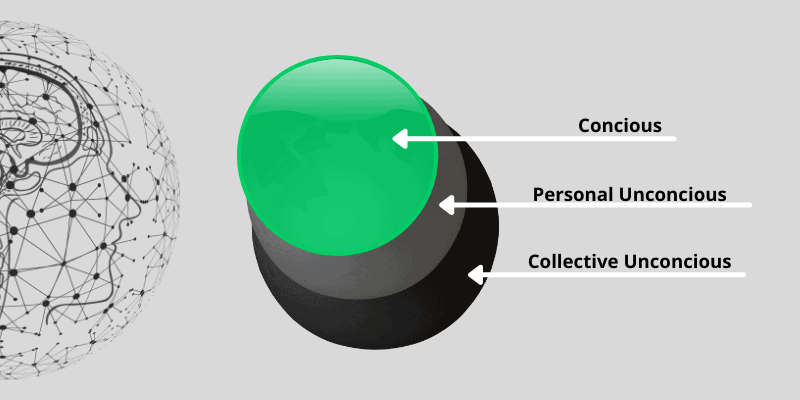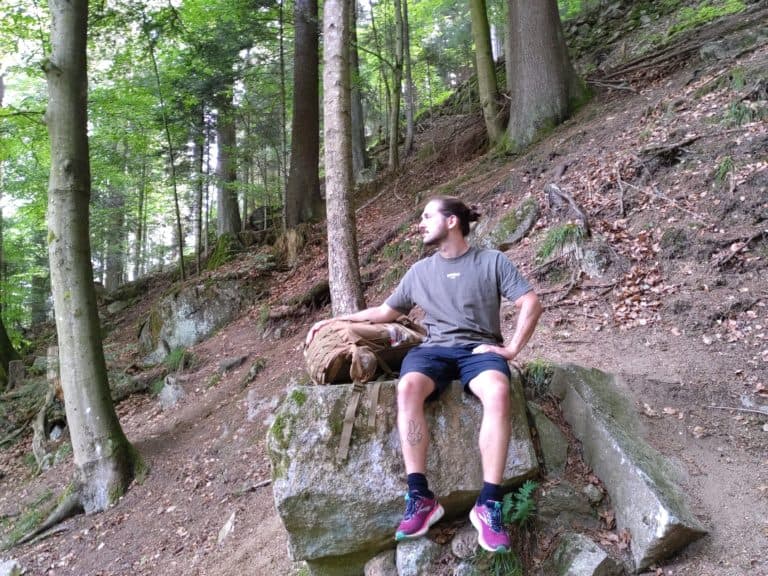You carry the history of mankind within you
What if we carry around not only our own history, but also that of our ancestors, which on top of that influences us in our everyday life?
What sounds like the idea from the famous books and games series Assassins Creed, is actually the subject of an integral part of Carl Gustav Jung's theory of analytical psychology. By the way, the name of the super-computer "Animus" is also not found by chance, but is a tribute in honor of the famous psychologist (what the Animus and its counterpart Anima actually are, we will look at in a separate article).
The following quote is from Carl Jung and we will look at what it means:
"Man always carries with him his whole history and the history of mankind."
- Carl G. Jung

Briefly, Jung's theories are extremely complex and therefore impossible to cover entirely in this article. But even the small part we will look at will be highly simplified in order not to go beyond the scope.
The shortest summary is for the meaning of this quote, is the following:
This quotation refers to Jung's theory that every person carries his own experiences within himself and is shaped by them. Partly consciously, partly unconsciously. However, there would also be a kind of collective unconsciousness, which carries generally valid characteristics in itself, which were coined in the course of the history of mankind.
Thus, according to Carl Jung, the self can be divided into three parts. The conscious or "I", which stands for all parts of our self that we perceive; the personal unconscious, consisting of individual parts; which we do not perceive and finally the collective unconscious, consisting of parts that we are present in every human being.
The subject of the collective unconscious is highly exciting. Let's take a closer look at all three parts that make up the self:
Carl Jung's model for the psyche/self is very complex and so are representations. I have therefore created a very simplified representation to better visualize this topic:

Since for this quote the collective unconscious is the most relevant, since it is the most abstract. Let's put the cart before the horse and start with this one:
What Is the Collective Unconscious?
According to Carl Gustav Jung, the collective unconscious is a common basis in human psychology. Embedded in it are unchanging basic traits that emerge in every human being. Regardless of where or under what circumstances one grows up. However, we individuals are not aware of these traits.
Another term for this is "archetypal shadow". The shadow generally refers to the unconscious and the term archetype generally describes primitive mental images inherited from the earliest human ancestors.
In the collective unconscious we find the human instincts and the so-called archetypes (figures that are found in all cultures: the hero, the mother, the joker, etc.). But whether the archetypes are correspondingly responsible for our instincts, or whether the instincts are responsible for the archetypes, is not precisely stated. In his book "Aspects" Jung states that he does not know which one conditions the other.
As a result, the collective unconscious has, for example, the tendency for people to organize themselves into groups and typically establish power hierarchies.
What Is the Personal Unconscious?
Carl Gustav Jung also describes in his theory of the self that we have characteristics of which we are not aware, but which are not part of the collective unconscious because they have been developed individually through our own experiences.
These traits are often referred to as our "personal shadow". These traits are usually ignored or suppressed by the self. But break through now and then and influence/manipulate us.
What is interesting here is that these are traits that are truly unconscious. This means that if we know about our own tendency to react disproportionately aggressively in rare cases, it is not a true part of the personal unconscious.
An example of this can be that one tends to wrap women in absorbent cotton because one had an overprotective mother whose paternalism subconsciously annoyed or at least disturbed one. It could also be that a tendency to be more aggressive towards women arises from this situation in childhood, because without realizing it, one projects the image of one's mother onto women in general.
What Is the Conscious?
The conscious, according to Jung, is the part of ourselves that we know about. For example, you may know that you like to avoid conflict or that you often react very emotionally. You are aware of these corresponding qualities that you have.
The reason for such a shyness about conflict could be that one had experienced physical violence in childhood after trying to assert oneself in an argument.
Another example could be that you often get emotional because your parents modeled it to you. For example, if your parents are built close to the water and you know that's where your tendency to cry comes from.
Such a memory that we actively know about is considered the key to how a property could be part of the conscious.
So we have all the components we need to understand in order to comprehend the meaning of the quote.
Did you like this article? You can let us inform you about new articles:







